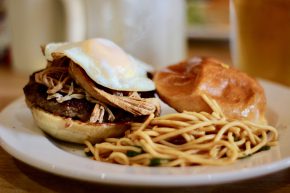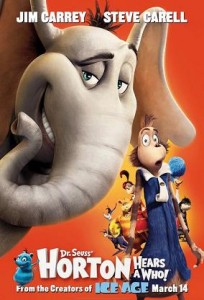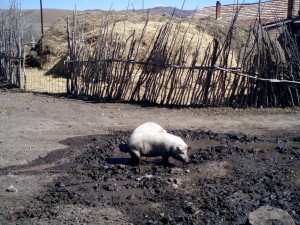
Farm to table is a popular concept and a strong rebuke against processed foods. Of course, factory farms are still called farms, but the point is there, nonetheless. But what do you call a meal at an actual farm? I’m thinking “table on farm,” and remember, you heard it here first. So, when I paid a visit to Pond Hill Farm on the outskirts of Harbor Springs, Michigan, it was quite a delight to eat food around animals that could probably be classified as pre-food.


